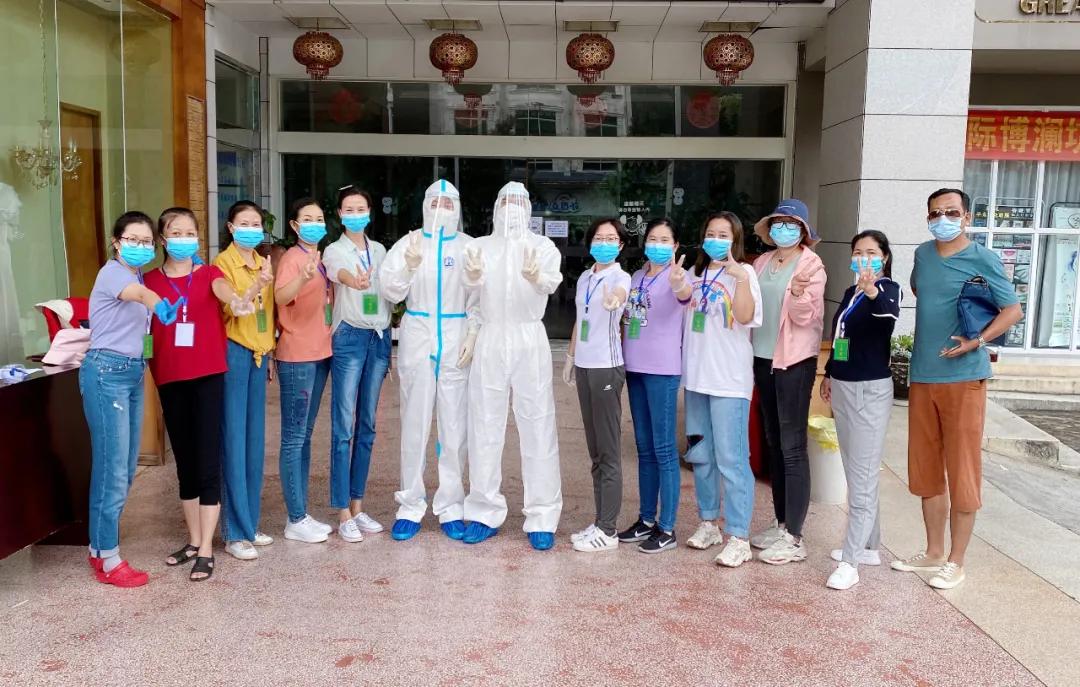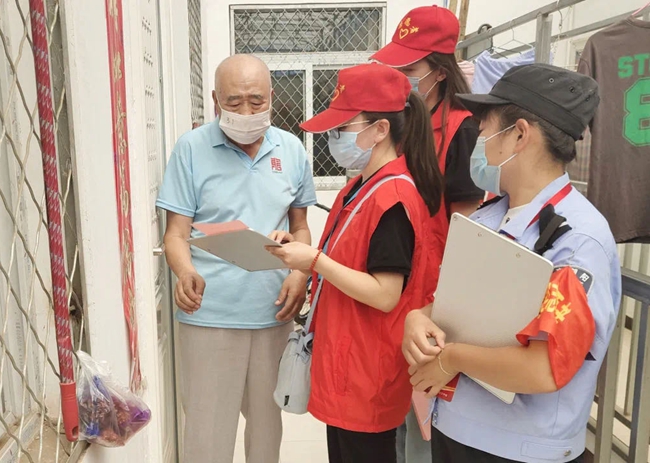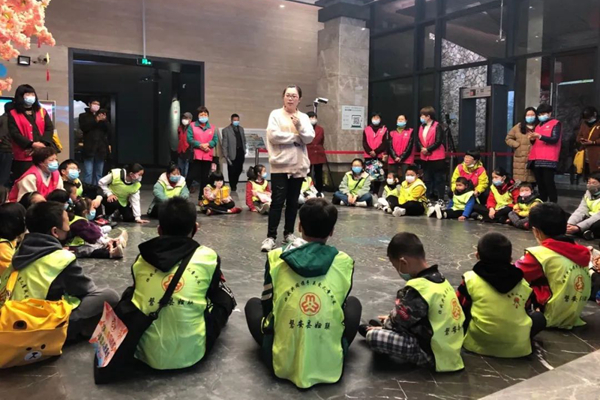
University Students Mentor Children of Frontline Workers
The COVID-19 outbreak has compelled volunteers from all walks of Chinese society to lend a helping hand, but not all of these individuals work directly to help prevent or control the spread of the virus.
Instead of being stationed at transport hubs and helping with temperature checks, the "cloud counseling" volunteer group comprising 328 students from East China Normal University has been helping to make the lives of those working at the front lines a little easier.
Since Feb 18, these students have been relying on the video and voice call functions on social media platforms such as WeChat and QQ to provide guidance and companionship for the children of front-line workers, such as medical personnel and police officers, seeing how their parents are bogged down by the work to contain the virus.
The volunteers also teach these children about epidemic-prevention methods as well as provide counseling if needed.
According to Liang Hongliang, the deputy dean of the Meng Xiancheng College of East China Normal University and the founder of this group, more than 300 students signed up for the initiative within 24 hours after the call for volunteers was made in early February.
"Our team covers nine major disciplines of primary and secondary education. Before tutoring, we invite pedagogy and psychology experts, professors from different fields and experts from the college's security department, funding center and family education center to give the team a systematic and comprehensive pre-job training to ensure that they can provide high-quality, efficient and accurate guidance for the children," Liang says.
To date, the volunteers have spent more than 7,000 hours on this initiative, interacting with more than 290 children from across 14 districts in Shanghai.
Among the volunteers is Ma Jiawen, a political-science major from the Meng Xiancheng College of East China Normal University, who is responsible for tutoring Wu Yibei, a middle school student whose mother works in the neighborhood committee.
Although Ma has been helping Wu with her studies, the volunteer, too, has managed to learn something from this experience.
"In the process of tutoring children, I need to constantly adjust my tutoring methods based on her classroom feedback. I feel that the work that goes in my lesson preparation will help me to prepare for my desired career as a teacher," says Ma.
According to Liang, the team has been adjusting the frequency and timing of their services following the commencement of online education in primary and secondary schools on March 2. For example, counseling programs have been shifted to the weekends after consultations with the parents.
Students in Shanghai are still not allowed back in classrooms as part of measures to prevent the spread of the virus.
"We will hold more activities online, such as lessons that teach poems and composition. We also hope to invite some of these children to visit the university and have a glimpse of what college life is like after the outbreak," Liang says.
(Source: China Daily)
- Women Workers and Volunteers Contribute to Citywide Nucleic Acid Test in Qingdao
 Ruili Women's Federation in Yunnan Joins Anti-COVID-19 Epidemic Battle
Ruili Women's Federation in Yunnan Joins Anti-COVID-19 Epidemic Battle Chaoyang Women's Federation in Beijing Makes All-Out Efforts in Fight Against Virus
Chaoyang Women's Federation in Beijing Makes All-Out Efforts in Fight Against Virus- Women's Federations in C China's Hubei Help Women's Enterprises Resume Work
- County Heads, Women's Federations' Presidents Promote Agricultural Products via Livestreaming Shows
 Medic's Stories About Anti-Virus Fight Inspire Left-Behind Children at Women's Federation's Activity
Medic's Stories About Anti-Virus Fight Inspire Left-Behind Children at Women's Federation's Activity

 京公网安备 11010102004314号
京公网安备 11010102004314号